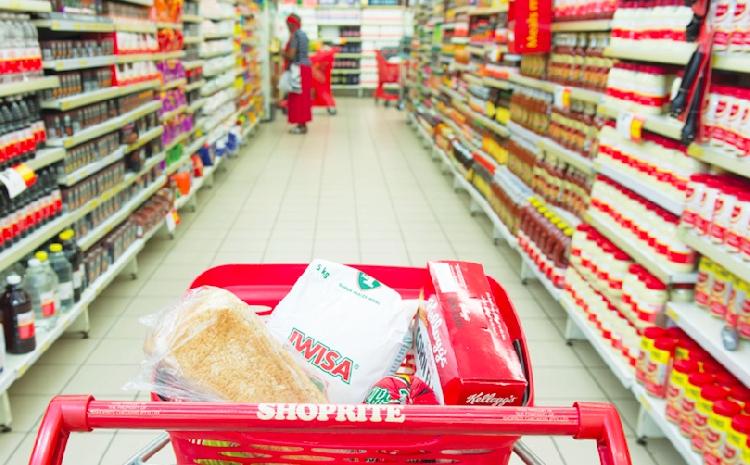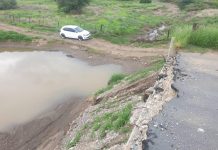Africa-Press – Namibia. IF food and fuel prices continue to rise at the current rate, many poor communities would face severe hunger and would not be able to afford transport, analysts warn.
On top of this, crime and countrywide protests would increase. Since the start of the Covid-19 pandemic, many Namibian households have been hit hard financially – especially the poor. Food supply chains have been disrupted, and prices continue to skyrocket.
“A poor household may spend 60% or 70% of its income on food, while wealthy households may only spend 10% or 20% of their income on food. Increased food prices hit poor people especially hard,” labour expert Herbert Jauch says.
The price of food and fuel has continued to rise significantly this year, and has surpassed the current inflation rate. According to the Namibian Consumer Price Index as released by the Namibian Statistics Agency in January 2021, the annual inflation rate has increased to 2,7% from 2,1% recorded in January 2020.
On a monthly basis, the inflation rate has increased by 0,9%. A report from Simonis Storm Securities indicates that annual inflation marginally lifted to 3,5% in September 2021, compared to 3,4% in August 2021.
The prices of food and non-alcoholic beverages have increased by 26,2%. Goods inflation was mainly driven higher by oils and fats (up with 17,7%), meat (12,1%), fruit (10,2%), coffee, tea, and cocoa (4,7%), and milk, cheese, and eggs (up with 3,2%). YOUTH, WOMEN HARDEST HIT
“The past two years have been extremely difficult for working people in general. The already high levels of unemployment were severely worsened during the coronavirus pandemic, and this has affected young people and women especially negatively,” Jauch says.
He says wage levels are low for the vast majority of Namibians, which means most households are struggling to simply make ends meet. “Since the Covid-19 pandemic started, workers have hardly received any salary increases, or even inflation adjustments,” he says.
Jauch says this is affecting poor households the most. “The fuel-price increases hit virtually all Namibians – either in the form of higher expenses to use their private vehicles, or in the form of increases of taxi and bus fares on which so many Namibians rely,” he says.
UNDER-RECOVERY According to a Simonis Storm report last month, the Ministry of Mines and Energy incurred an under-recovery of N$1,32 on petrol, and N$1,54 on diesel.
The ministry therefore had to increase local petrol and diesel prices by 50 and 70 cents per litre, respectively. Petrol and diesel prices have now increased to N$14,95 and N$14,88, respectively, since the beginning of this month.
This was the seventh fuel-price hike this year. “Given the weak rand and higher global oil price expectations, we foresee at least one more fuel-price hike by the ministry before the end of the year,” Jauch says.
“Fuel price increases lead to higher transport costs for consumer goods (including food), which in turn will increase prices for consumers. Thus, the vast majority of Namibian households face a dire economic situation.”
Namibia is among the countries in the world with acute poverty and extreme differences between the rich and poor, without genuine efforts being made to tackle the problem, a 2019 United Nations Development Programme report stated.
CONSTANTLY STRESSED Recent findings by the World Bank reveal that 64% (1,6 million) of Namibians live in poverty. Namibia also has the second-highest inequality and unemployment rate in the world, with 50% of young people unemployed.
According to last year’s United Nations Global Report on Food Crises, 800 000 Namibians are constantly stressed about where their next meal will come from, and 400 000 of these people need humanitarian aid.
Windhoek is regarded to be 34,7% more expensive than Cape Town in South Africa. Community activist Rinaani Musutua of the Economic and Social Justice Trust recently told The Namibian the rising food prices will push already poor Namibians further into extreme poverty.
“Rising fuel prices also pose a serious threat to food security, health, and education,” she said.
“This means people will not access healthcare services, and there won’t be transport money to send children to school. People will also not be able to pay for their children’s education-related expenses as having food to stay alive will be the main priority,” Musutua said.
MORE RETRENCHMENTS With the cost-of-living increasing, businesses will have to retrench employees as they won’t be able to afford paying them as labour costs increase. This, in turn, would lead to even more people being pushed deeper into poverty, and people losing their homes, Musutua said.
“The Basic Income Grant (BIG) Coalition of Namibia and several experts have for several years tried to make elected leaders aware of the threat that poverty and inequality pose to Namibia’s peace, security and stability – as is evident in the incidence of crime and protests increasing over the past few years,” she said.
“The government must take urgent steps to address the needs and discontent of the ever-increasing hungry Namibians.
For More News And Analysis About Namibia Follow Africa-Press






